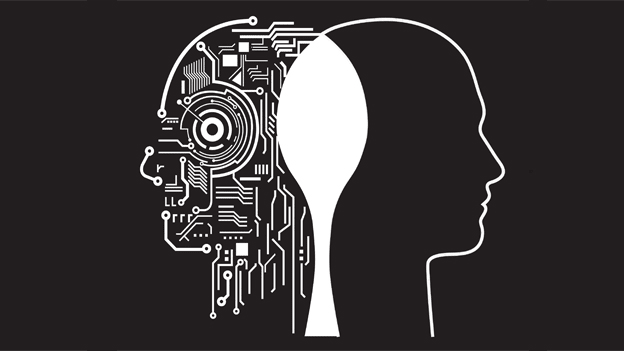Future-proofing employees: Mindset, Skill set, Toolset

The future cannot be predicted with precision or authority. Yet, one might argue that in order to be future-ready, organizations need to know exactly what the future looks like. While a lot has been said and written about how businesses need to embrace digital technologies in order to remain relevant, the impact of this complex digital world on the employee warrants more discussion. As digital tools alter the way we live and work, a workforce with the right digital skills and mindset is key to business success. Let us take a look at how organizations are future-proofing their employees and how to get started with the process.
The need to future-proof
The rapid advancements in the Fourth Industrial Revolution have already started significantly disrupting current business practices and models. The conventional wisdom and knowledge on how we work is being re-written, which means that expertise in new skills and tools is gaining precedence over existing job roles. According to one World Economic Forum estimate, automation and machines will replace up to half of the “current routine-based, middle-skilled white-collar roles” by 2025. Yet, a Deloitte and Forbes global survey of over 1,600 C-suite executives shows that organizations and leaders are woefully under-confident that they have the “right workforce composition and the skill sets” required for the future.
Future-proofing, then, is no buzzword that will fall out of trend soon, but a very real and indispensable need for organizations to survive and grow in the future. Most industry leaders have already started on the journey to transform their business practices and future-proof their workforce.
How industry leaders are doing it
At the core of digital transformation and being future-ready is the new-age employee who is technically proficient, innovative, equipped with soft skills and is helping organizations transition into the future. It shouldn’t then come as a surprise that industry leaders are not relying on conventional learning practices for a transition as critical as this. For instance, when AT&T, as a report by HBR states, realized that traditional training methods were not able to equip their employees with expertise in digital skills, it started investing heavily in employee education and professional development programs. A self-service online platform, which provided tools for performance management and career enhancement, was also made available to all the employees. The company started reaping the dividends of the program from 2016 when retrained personnel were able to fill half of all the tech-management vacancies and also bagged 47% of the promotions. However, at the center of this shift was a change in the mindset, which did away with traditional talent and skilling practices. AT&T identified skill gaps and created ‘future role profiles’, and also restructured company roles, goals, metrics, and compensation models as a part of the same.
Indian IT companies, that are particularly vulnerable to the changing digital landscape, have also identified re-skilling and up-skilling their employees as a priority in order to be future-ready. Most IT firms have some sort of digital skill development program or training underway, and as per a report by Quartz, TCS has already trained over 2, 00,000 employees and Wipro has trained nearly 40,000 employees in the last few months.
Several non-IT organizations are also betting on their future-proofing their employees. For instance, ING created an exhaustive list of ‘capabilities’ it needed in the future and categorized the same into knowledge, skills, and behaviors. It then charted on a journey to help its employees acquire and leverage these skills, and in the process, became future-ready. It is pertinent to note that merely skilling and training employees with digital skills is not enough, and fostering a new culture of work, leadership, and management is equally important to help develop agile mindsets. For instance, Microsoft has replaced the concept of ‘office’ with ‘neighbourhoods’, wherein shared team rooms are available for employees to work, discuss, and be accessible.
Getting started
It is amply clear to leaders and employers that digital skills and abilities will be critical in the future. But, how do organizations identify the skills that are high-priority? With several technologies continually impacting the business world, it is important to understand how to go about making the workforce future-ready and where to begin the process.
A good starting point will be to undertake an objective assessment of the workforce’s current digital abilities and designing a roadmap of how new technology can support the same. Answering questions like what roles will be automated, what new functions will be created, how will the process be undertaken, and how can the HR work with the leadership and the employees to facilitate a smooth transition is critical at this stage.
PwC suggests that once these goals have been identified, the entire workforce should have clarity on the skills they need to master and the learning path they need to undertake for the same. Furthermore, hiring the right people, who can integrate new ways of thinking and expedite innovation, is essential. Creation of new structures and spaces that encourage initiative and experimentation to solve real business challenges will bring together employees with diverse skills and capabilities. Employers will also have to make a conscious effort to cultivate a flexible, inclusive, and collaborative culture of work.
The role of HR in this process of future-proofing the workforce will be pivotal. In addition to aligning an organization’s business goals with its people strategy, the HR will also be responsible for implementing a massive up-skilling and re-skilling drive in their organizations and impart technical skills, business acumen, and soft skills. As we step into a new and changed business environment, naturally, there will be uncertainty and anxiety. But, since the future is impossible to predict, preparing for it is the only way to proceed. Instead of resisting or denying the integration of technology in the workspace, we need to focus on developing irreplaceable human skills that help us make the most of it.
















